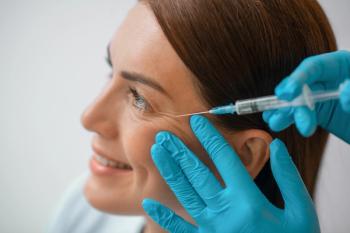
Cosmetic surgeons embrace silicone gel - for the most part
National report - Silicone gel breast implants represent a welcome option for informed patients, most sources say.
However, not all experts agree that manufacturers have adequately studied the potential risks - and others emphasize that saline isn't going away.
Last November, the Food and Drug Administration (FDA) approved the marketing of silicone gel-filled breast implants made by Allergan Medical (formerly Inamed) and Mentor for breast reconstruction in women of all ages and breast augmentation in women ages 22 and older.
At the same time, the products' labeling emphasizes risks including rupture and the need for MRI scans starting three years after implantation and continuing every two years thereafter.
Diverging opinions
The decision "hasn't convinced me the implants are safe - I was comfortable with that based on review of the literature in the last 15 years," says Michael Rosenberg, M.D., a cosmetic surgeon in private practice in Mount Kisco, N.Y. "The FDA's decision has allowed me to have an upfront discussion with my patients and let them choose what's best for them," he adds.
Dr. Rosenberg began using silicone for breast augmentation in late November.
It was never intended to mean silicone gel implants will suit all patients.
Rather, the availability of silicone implants "empowers women to make well-educated choices and keeps the decision between patient and physician," he says.
He says, "Silicone implants are much more natural, and women tend to like them better."
Some women have "gotten it in their heads that silicone is somehow dangerous, so they prefer saline. But in all honesty, if a silicone implant were to rupture, the woman would still preserve her breast mound" while awaiting repairs, whereas the body resorbs saline, Dr. Berman says.
Nevertheless, some sources are approaching silicone implants with great caution.
Dr. Rohrich says he'll offer silicone implants only to patients with no breast tissue who have failed other implants.
And, he'll tell them that with silicone, "The incision is much larger," and the incidence of implant hardening significantly higher - 20 percent to 30 percent for silicone, compared to 5 percent for saline.
Newsletter
Like what you’re reading? Subscribe to Dermatology Times for weekly updates on therapies, innovations, and real-world practice tips.











